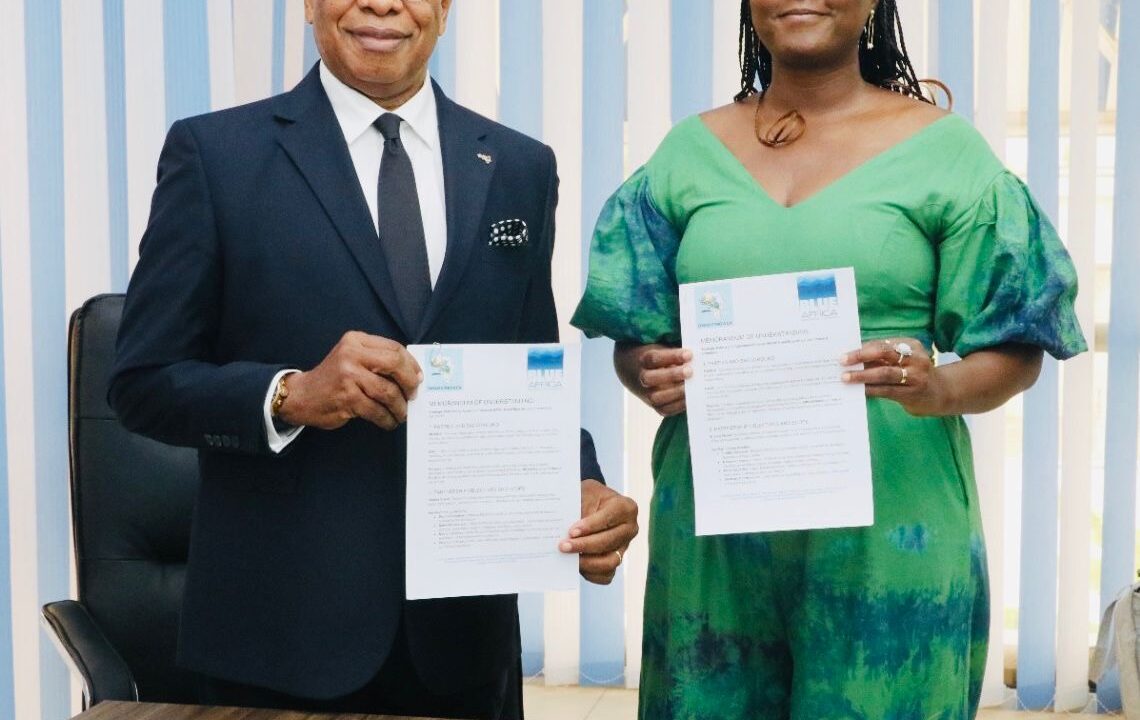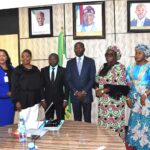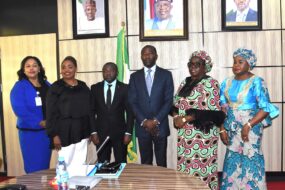
The Blue Africa Conference & Exhibition (BACE) has signed a five-year strategic partnership with the Maritime Organization of West and Central Africa (MOWCA), in a move that could reshape Africa’s maritime sector and accelerate growth in the continent’s blue economy.
The agreement, signed in Abidjan by BACE Event Director Mudzithe Phiri and MOWCA Secretary-General Dr. Paul Adalikwu, positions the maritime sector as a driver of trade, sustainability, and youth employment. It was witnessed by maritime leaders, government officials, and private sector stakeholders.
A press statement issued by BACE on Tuesday explained that Africa’s 30,000-kilometre coastline, touching more than 38 countries, offers a gateway to intra-African and global trade. With the African Continental Free Trade Agreement (AfCFTA) seeking to connect a $3.4 trillion market, maritime infrastructure and cooperation are seen as central to continental economic integration.
“Our oceans connect us to each other first, unlocking the AfCFTA opportunity, and they also connect us to the rest of the world, This positions us perfectly as we move towards refining our raw materials, creating products to trade amongst ourselves and globally”, Phiri said.
Phiri also stressed that the partnership reflects African unity, bringing together companies and institutions from South Africa, Kenya, Nigeria, Côte d’Ivoire and beyond to drive meaningful change.
With 60% of Africa’s population under 25, the agreement emphasizes youth employment and entrepreneurship in the blue economy. Opportunities span maritime logistics, fisheries, coastal tourism, and shipbuilding.
“Africa is a young market, and the jobs our youth need are in the blue economy,” noted Phiri who added that training initiatives, innovation hubs, and mentorship programs will be rolled out to support young entrepreneurs.
Dr. Paul Adalikwu, the first Nigerian to lead MOWCA in its 50-year history, has prioritized reforms since his election in 2021. His initiatives include establishing the Regional Maritime Development Bank (RMDB), securing African Development Bank support for dry dock projects, and championing maritime security through Nigeria’s Deep Blue Project and anti-piracy legislation.
“We at MOWCA are thrilled to partner with such a formidable entity to publicize the enormous potential of the Blue Economy in Africa,” Adalikwu said.
The partnership has secured support from Nigeria’s Federal Ministry of Marine and Blue Economy, with additional government initiatives expected in the coming weeks. Industry leaders also anticipate new investments in ports, shipping, and marine technology.
Over five years, the collaboration will focus on: positioning the maritime sector as a trade catalyst under AfCFTA; strengthening regional security; creating sustainable youth employment; promoting environmentally responsible ocean resource use; and boosting infrastructure investment across West and Central Africa.
The statement stressed that Africa’s blue economy is estimated to be worth over $296 billion annually, driven by fisheries, energy resources, and shipping routes. However, piracy, underdeveloped ports, and environmental challenges remain barriers. Experts say the BACE–MOWCA alliance could reduce trade costs by up to 30% and reposition Africa as a maritime hub.
















